January 31st, 2021
The big snowstorm weighed down so many trees with heavy snow that many branches broke and some trees were bent down:
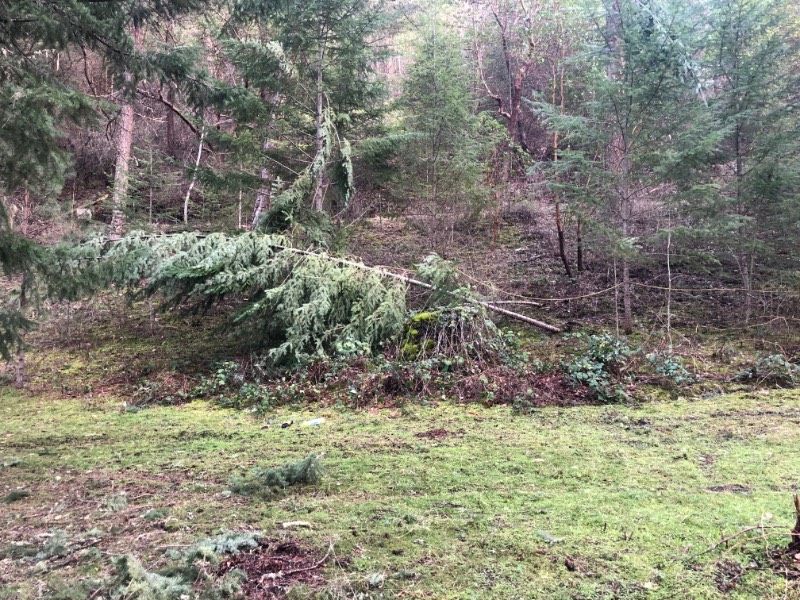
This is the biggest; it’s about 30 feet high. I didn’t want to lose it, so I resolved to raise it back to vertical. In this photo you can see the rope running loosely to the right; it has to go all the way to the nearest tree along the line of the fallen tree’s direction. With the rope attached about halfway up the tree, I began pulling it towards vertical:
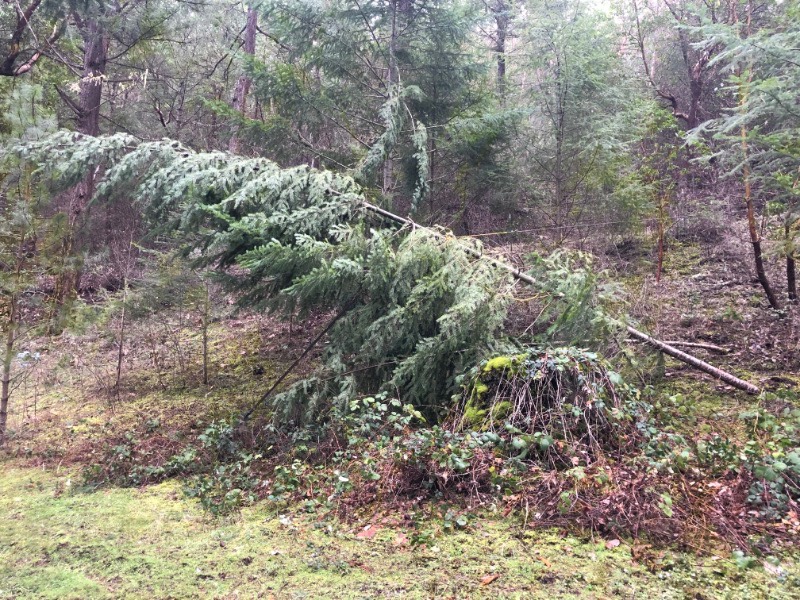
I’m not strong enough to pull that tree up with my own muscles; instead, I used a device known as a “come-along”:
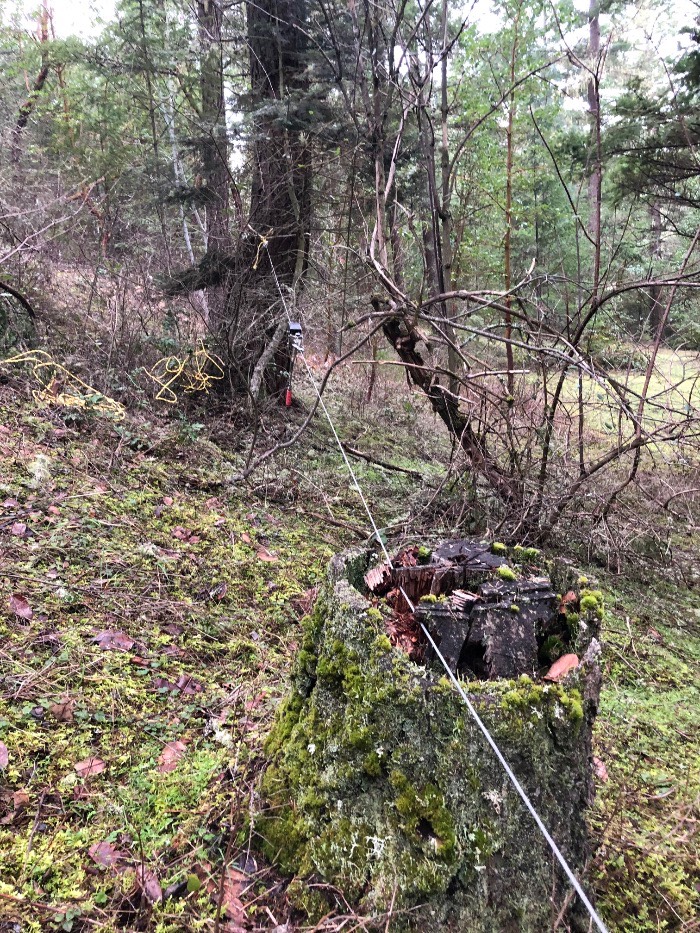
That’s it with the red handle hanging down. It’s a ratchet-and-pawl assembly with steel cable. This is just a preliminary arrangement; for the final pull I used two come-alongs, slowly pulling up the tree. Here’s the full view:
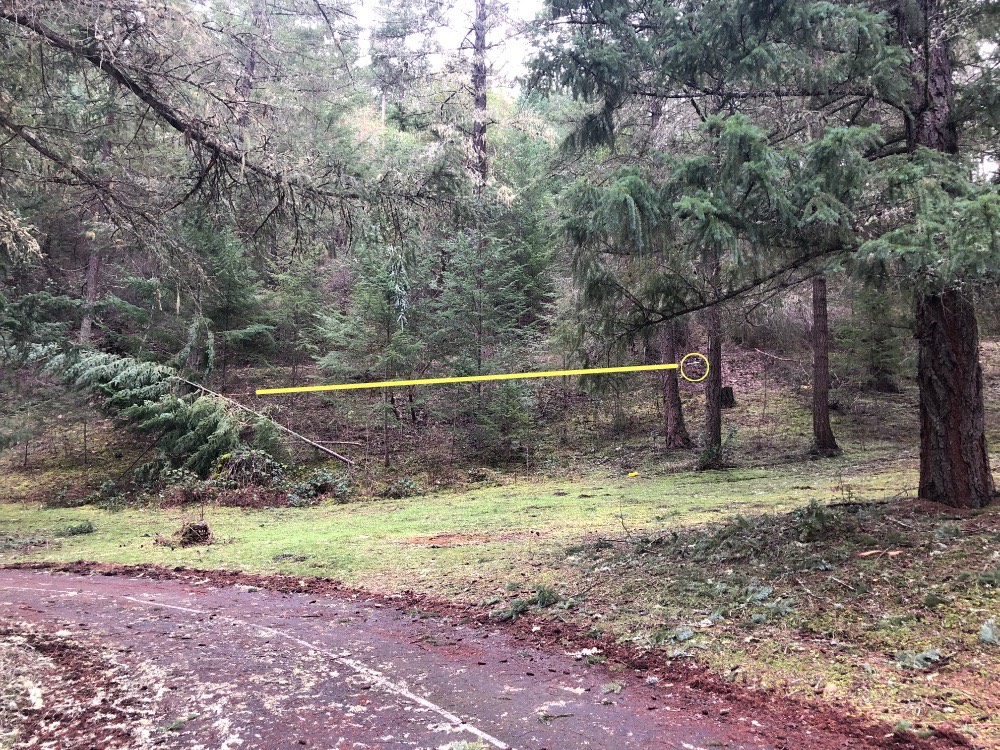
It’s not possible to see the rope and cable at this resolution, so I traced it with a big yellow line. You can see the come-along right at the end of the yellow line; the cable continues on to the support tree, which is behind the tree on the far right.
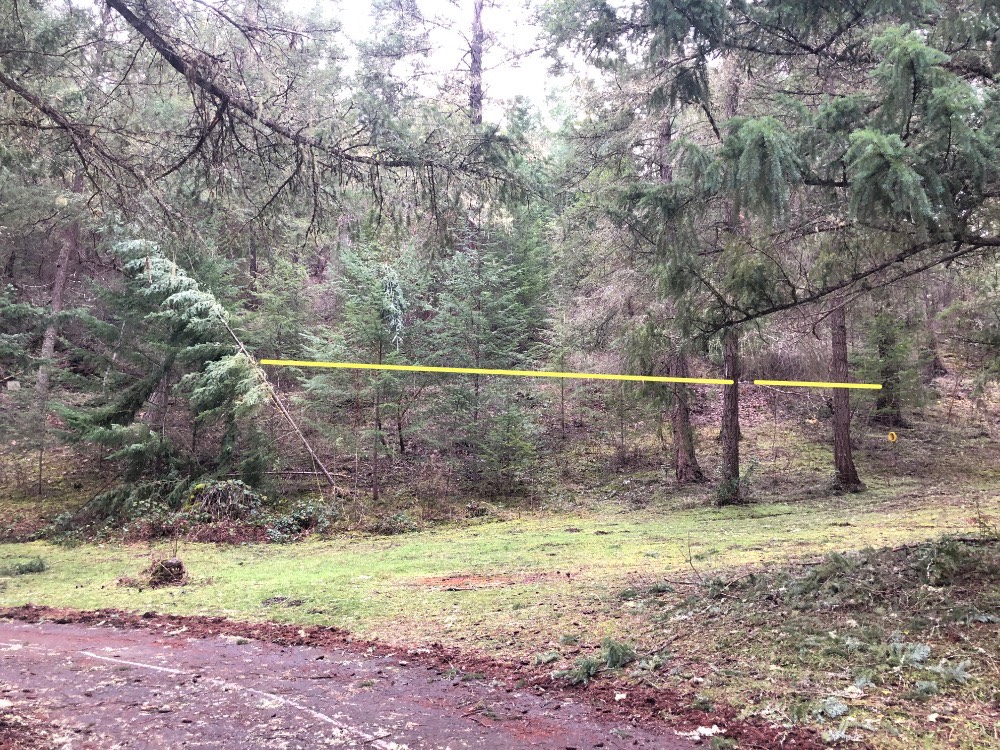
In this view, you can see that I’ve gotten the tree even higher. You can also see the support tree, which is nearly a hundred feet away from the fallen tree.
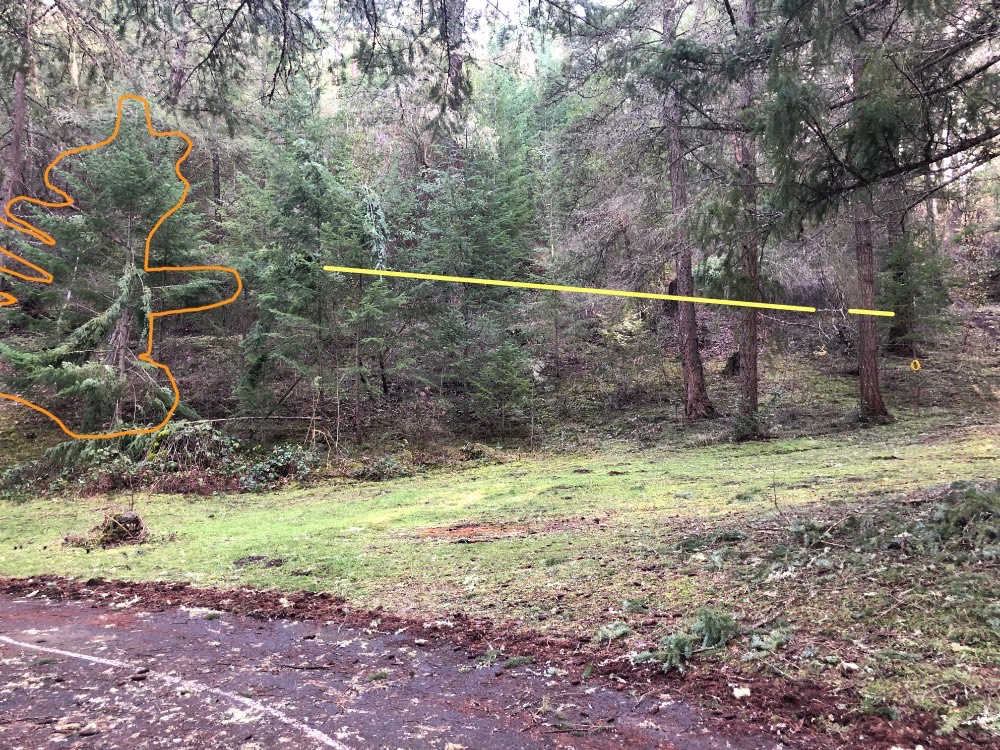
In this photo, I have succeeded in getting the fallen tree vertical. I have outlined in orange a tree next to it. On its way down, the fallen tree wiped out some branches of the neighboring tree.
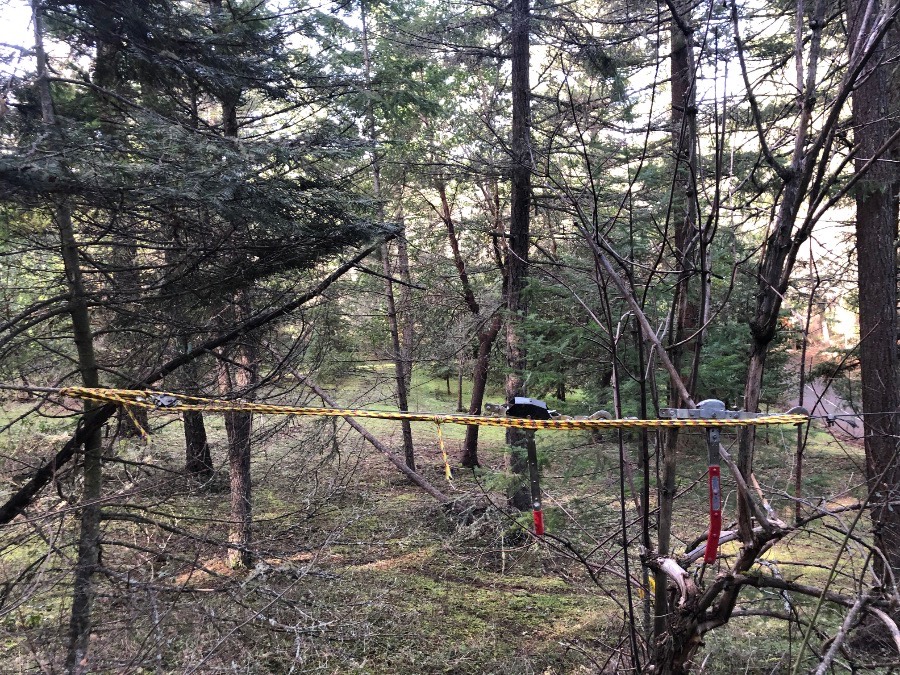
Here are the two come-alongs I used to pull up the fallen tree. I have now bypassed them with the yellow rope. This permits me to loosen and remove the come-alongs without letting the tree fall back down. I’ll have to leave those ropes in place until summer, by which time the tree will have stabilized in its proper vertical position.
I’ve got half a dozen of these rigs scattered through the forest. It uses up a lot of rope.
